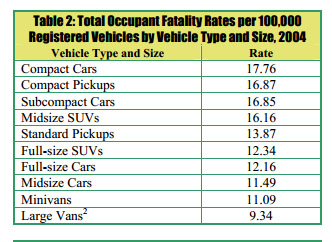A couple friends of mine are taking a class on being a "white ally" - race awareness and relations, power and privileged, and counteracting racism.
One of them mentioned to me some critical feedback she had offered and it got me to thinking in more detail what has always bothered me about those sort of discussions, but up until now never quite pinned down.
The following is not a commentary on that class in particular, as I know essentially nothing about it, but rather a critique of a few general ideas I have heard and read on the topic in the past:
1 There is no such thing as "people of color"
-The impact of past racism (including slavery) and present racism does not effect all races equally, nor all in the same way.
- A black american and a white american likely have more in common with each other than with a fresh-off-the-boat Vietnamese person. A white american whose family has been in the US for generations likely has more culture in common with a black american than with a first generation eastern european immigrant with whom they share skin color.
-The very term "people of color" encourages white people to think in terms of a false dichotomy of 'us' (all white people) and 'them' (everyone else). It not only homogenizes all other races, it also makes everyone not white into an "other".
-Lumping all non-white cultures into one category, while giving white an entire separate category in itself suggests a type of superiority.
-This dichotomy also discounts the existence of mixed race individuals (officially 2% of US society, but really much higher - most surveys, as well as society, force people to choose one identity, even if they are in fact mixed)
2 Historical racism is the single largest cause for modern black poverty, and poverty does generally correlate with crime. However no historical or sociological factors can excuse individual behavior. No matter what circumstances a person is born into, they have a choice about their own behavior. Apologizing for, ignoring, discounting, or explaining away black crime rates, drug rates, or general anti-social behavior (e.g. boombox on a crowded train) does nothing to increase equality, and does not bring less conscious white people about as allies.
3 Discrimination is explicitly illegal. Talking about "institutionalized" or "systemic" racism does not address the issues which are most relevant today. While there are still white supremacists in the US, their view has become as unacceptable in mainstream society as it once was only among civil-rights activists. The president of the US is 1/2 African. This does not mean that the conversation about race is over. However, it does mean it is time to change that conversation.
For example, talking about power hierarchies is mostly nonsensical today. If racism = racism + power (as is often claimed by race activists), this does not imply that only whites can be racist, because whites do not have any particular power over other races. There are minorities in the role of police officer, judge, congress person, boss, professor, etc. as well as whites in poverty, in jail, or otherwise powerless. If you ignore all individual circumstances and look only at the whole society, then no one can be racist, because society is no one person.
4 Rarely is it explicitly acknowledged how much - and in what way - individuals (primarily, but not exclusively, white) continue to benefit from past racism. This nation was taken by force from the American Indian, built largely by African slaves (as well as Asian indentured servants) and thanks largely to not only racism, but also inheritance and locally funded education, past disparities directly result in present disparities. Even if one's own ancestors never killed Indians or owned slaves, the mere fact of living in this country means you personally benefit from those who did.
5 Not all non-white people are poor. Not all white people are middle class or wealthy. Class and race are not interchangeable. To speak about them as if they were interchangeable represents a stereotype - it implies a universal truth based on a statistic. The implication itself is racist.
Replacing discussions of poverty, economics, and class with discussions of race is a tool those with power (white, yes, but a special subset of white people - wealthy conservatives) use to polarize the working class. They emphasize criminals and welfare recipients (read: blacks) or immigrants (read: hispanics) and leave unspoken as a given the unity between white Americans of different classes. This helps prevent what should be a natural alliance of the lower class against those who exploit them.
6 What keeps the racial status quo in our society is not a social issue, but rather an economic one.
What too few people talk about is the way in which the condition of one generation affects the next.
After slavery blacks were supposed to get land. This was not a hand-out, but merely a way to compensate, to allow them to begin to catch up. This never happened.
Since poverty is inherited just as surely as wealth, the only way to level the playing field short of paying reparations (with 145 years interest) today would be a strict inheritance tax on not only the wealthy, but the middle class. This would include not only cash, but things such as houses and family businesses.
The single largest factor in predicting an individuals success in life is their education. Pre-school is the best indicator of how well a child does in school. It will be impossible to ever have a equal society without universal, mandatory, publicly financed pre-school. Schools in America are funded 50% or more by local taxes. This system guarantees that schools in poor areas are underfunded and schools in wealthy areas have better resources and an easier time keeping good teachers. Locally funded public schools is an amazingly effective method of retaining the status quo, while appearing on the surface to be neutral and fair. To counteract generations of inherited poverty, ignorance, and a cultural mindset of being separate from society, America should be offering fully funded college for all low-income high-school graduates. And because poverty and ignorance are inherited no matter one's color, this should be extended to anyone who can't afford it.
Racism, in the sense of individual people with power holding stereotypes about a race and acting on that prejudice against individual members of said race, is a relatively small factor in modern America. Formally institutionalized racism is a thing of the past.
Were all of society, at all levels, to suddenly become "color blind", the trends set in motion hundreds of years ago would continue none-the-less. For this reason educating individuals about the existence of "white privilege" can not do much to change anything. If energy is going to be invested into change, it should be invested where it will do the most good.
Its one thing to be aware of culturally insensitive language. It is another all together to recognize that the economic system we take for granted perpetuates the impact of slavery, and that no matter how aware one is in their personal relationships, you directly benefit from the current system - and then work to change that system, even if it means undermining your own economic advantages.
This would mean advocating significant increases in middle class taxes, to fund more social programs. This would mean taking the time to counter the "tea-party" people, pointing out that true justice demands a redistribution of wealth. It would mean protesting to get colleges fees raised, in order to pay for scholarships. This would mean, instead of donating money / time / materials to your own children's school, donating that same time and money to the poorer district a few miles away.
Me personally, I have been called ni**er on more than one occasion. But (not counting by other black people who use it casually - that is whole different topic) it has been in each case by a meth addict (one disowned by her family, and the other evicted from a trailer park). These are people with no power, no influence. These are people so low on the social strata, all they have left to feel even mildly good about themselves is to find someone to hate, for any reason they can. As much as it roils the blood to hear it, they are harmless. The people and ideas that maintain the status quo - including associations of particular races with poverty, drug use, crime, etc - are not overtly racist; in fact, in most cases not even necessarily sub-consciously racist. Racism set up the status quo, but economics is what maintains it.
Capitalism, the free market, individualism, and the republic system of government (as opposed to true democracy) all play a part in maintaining the present as it was in the past. If we want a just society, those are the things that we need to look at first.





 When people think about fuel economy, they usually think about small
cars, perhaps a mid-size hybrid. If they think about trucks, its
usually to contrast them with a more efficient vehicle (and perhaps
chastise truck owners for their wasteful choice).
When people think about fuel economy, they usually think about small
cars, perhaps a mid-size hybrid. If they think about trucks, its
usually to contrast them with a more efficient vehicle (and perhaps
chastise truck owners for their wasteful choice).








